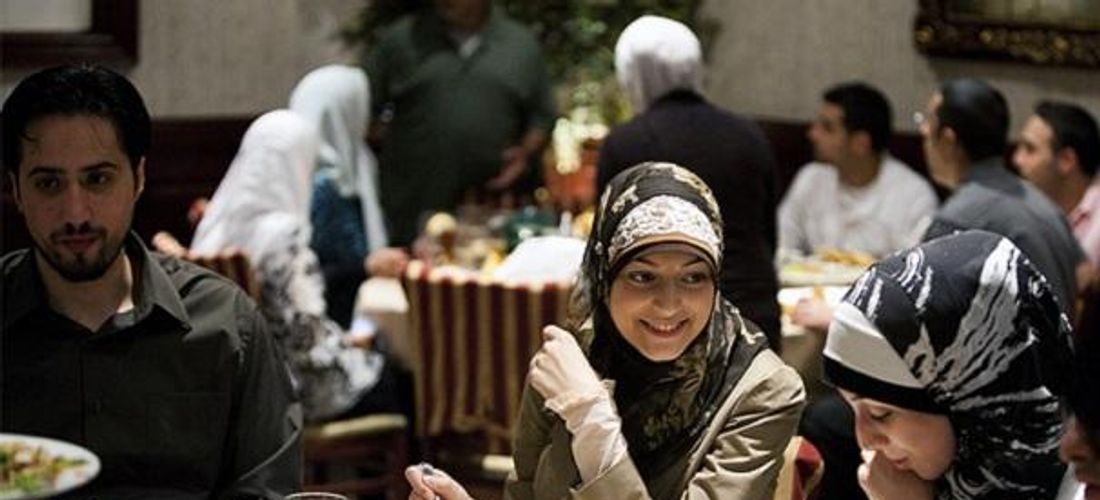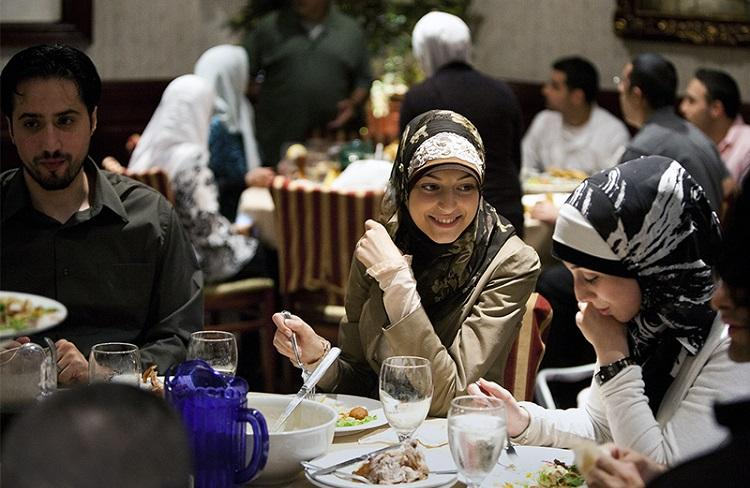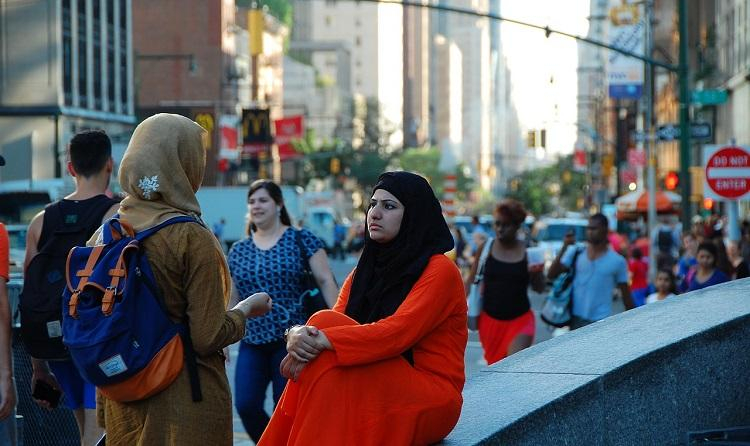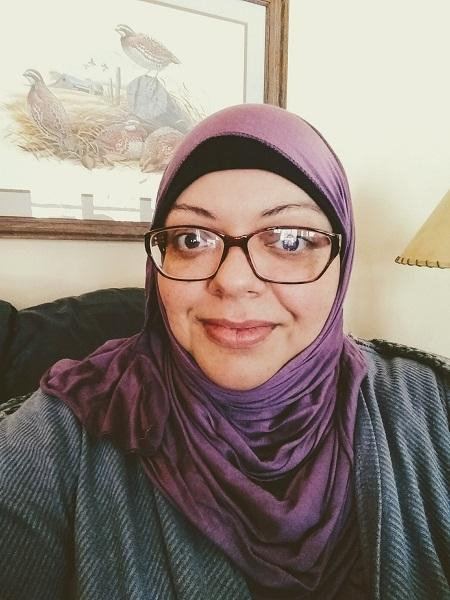Taking Ownership of One's Ramadan Experience - a Convert's Story
Faith
|
May 8, 2019
|
6 MIN READ

By Karla Kovacik
For many Muslims, Ramadan is a time of great joy, a meeting with a long-awaited friend. It is a time for deepening one’s relationship with Allah, reading the holy Quran, strengthening the bonds of family, increasing acts of worship, spending more time at the masjid and breaking bread with friends and loved ones for iftar. While for some Muslims, this sacred month is a time of immense togetherness, for many U.S. converts to Islam, it represents a time of increased loneliness and isolation.

Image source: Pinterest, Religion News Service
There are many articles discussing just how alone converts feel in Ramadan, asking the born-Muslim community to be more welcoming and inclusive and sometimes giving a list of things born-Muslims can do to help converts. Such articles present important perspectives and offer insights into the very real, painful and complex struggles for Muslim converts. But there is another side to the story - that of converts who are able to successfully take control of their Ramadan and forge their own traditions and experiences.
In this article I am sharing eight responses from my 2014 "Feeling Muslim" study to portray how some American converts to Islam have successfully overcome the loneliness and isolation they experience during Ramadan (and pretty much any other time of year). To do this, I would like to focus on responses to this question from the study: “As an American convert to Islam, do you feel welcome in your Muslim community?”
The eight responses I’m sharing here are those where the respondents answered, “Yes or yes and no,” and went on to explain why. In this way, we will gain insight into what has helped some American Muslim women converts overcome the loneliness and isolation that can come along with conversion to Islam, so we can try and model these things in Ramadan.
Another way to view this article is what it would be like (hypothetically speaking) to have a conversation with eight Muslim women converts sitting together in a safe space, openly discussing their conversion experiences. I’ve taken the responses to the question highlighted above and imagined it as a running conversation for you:
Jannah, our moderator, begins the conversation by asking, “As an American convert to Islam, do you feel welcome in your Muslim community?”
Kerry breaks the ice by discussing her experiences and states, “Yes. I've never felt not welcomed. I've never felt like I couldn't step into my place, learn and share my learning. I've always been a sort of punk and am comfortable with being on the outside of things, so I don't worry so much about the people who would exclude me.”
Samantha follows, saying, “Yes, I have [felt welcomed]. But, it was more so because I reached out first when I first moved to the city I am in now. Through that I met a sister who introduced me to many of her friends and that just snowballed from there. Meeting new people became easier once I knew a couple of people.”
After listening, Jameelah adds, “Yes, but I have also taken the time to get to know people from various backgrounds and cultures. I've learned to be respectful of those cultural differences. I think it's also important (especially for converts) to learn how to differentiate a country's culture from Islamic culture. This can avoid a lot of awkward situations. New Muslims need to be patient when someone pulls their feet away in salat(prayer) or when they are in a room full of Arabic/Farsi/whatever speaking people and that's ALL they do is speak a foreign language. Usually somebody will tell you what the conversation is about. Smile and nod a lot. Lolol.”

Another sister, Rabia, says,“Yes and no. I feel welcome to the extent that I reach out and do not allow myself to be constricted by fear or self-pity. I feel somewhat out of place when I attend events and notice people grouped by ethnicity. But this is a struggle endemic to the ummah and does not touch only converts.”
Jannah then asks if others have had similar experiences. Nodding in agreement, Angela, Asiya, Erica and Lakisha feel comfortable adding to the conversation.
Angela says, “Yes ... it was hard at first. I had to make the initiative to introduce myself and carry a conversation. Otherwise I would have sat in the corner being ignored and never meeting anyone.”
Asiya agrees, saying, “Yes, I feel welcome in most Muslim communities, though I think this is an issue for new converts who do not yet understand some of the misguided practices of some communities. If I do not feel welcome to a community, it is usually because that community is catering to the needs of a specific national or ethnic group. While this can be disheartening for a convert who is often seen as an outsider to such communities, I also understand the need of immigrant communities to preserve their unique identities and culture in the face of assimilation.”
Another sister, Erica, adds, “Yes and no. I have come to learn that you have to start the introductions and conversations within a community. They are often fearful and suspicious of outsiders.”
Lastly, Lakisha says, “Yes, I think I just decided I have every right to be there and just smile and say hello to everyone. I came to the realization that it is not that anyone is really against ME or AMERICANS it is just [that] they don’t have exposure to any of this. So, me saying hello - like I am welcoming them - makes others feel comfortable and more open to me.”
For all the challenges American Muslim women converts face, there are also successes, as evidenced by the above responses. However, it is important to note that these responses are only eight of 257 complete responses. It is also important to point out that while these women all had “yes” or “yes and no” responses, the majority of the 257 respondents answered “no.” A convert taking ownership of her experience in Ramadan or in Muslim communities in general is not the norm.

However, I am hopeful that by reading and pondering these specific responses and thinking about how these women managed the community cards they were dealt, that others reading this may find ideas about how to approach their masjid communities this Ramadan and benefit from all the blessings that come along with it, Insha'Allah. Taking from their responses, some things we can try this Ramadan are:
The successes of these eight women came when they took ownership of their faith, their journey and their experiences and walked into their masajid confident in their Muslim identities and their right to be there. To all my fellow converts, let’s try out one or a few of these things this Ramadan and see what happens, Insha'Allah. Also, a big dose of humor never hurts. When all else fails, imagine it’s a comedy show!
May Allah make this your best Ramadan ever and open the doors of His mercy, forgiveness and acceptance to you.
Karla N. Kovacik received her M.A. from The University of Georgia - Athens in 2015 in Religion and a concentration in Islamic Studies. As part of her Master's thesis research, Karla conducted the study "Feeling Muslim: An Intimate Portrait of Identity Cultivation among American Female Converts to Islam," which explores the identity formation and cultivation process of American women of all races and classes who have converted to Islam. She currently serves on the Steering Committee of the American Academy of Religion Religious Conversions Unit.
Subscribe to be the first to know about new product releases, styling ideas and more.
What products are you interested in?

